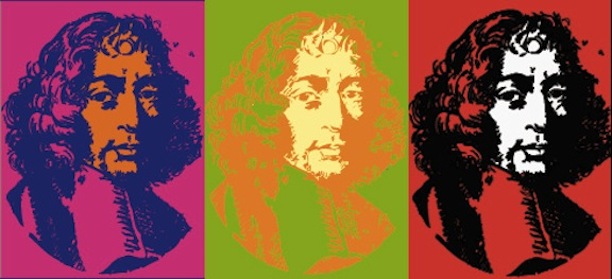Beliefs on God
As stated in my first post, Baruch Spinoza was excommunicated from his Jewish synagogue in 1656 and shunned by his Amsterdam community for his radical views on God and religion that differed greatly from the views he was taught during his traditional Jewish upbringing. These views he developed after being introduced to and heavily studying modern philosophers such as Rene Descartes.
Spinoza had what can be described as a classical pantheist view on God. That is, that he believed God and Nature were one inseparable entity. That meant that he believed everything around, all that you can see or imagine is God, even you and I. This was a very different view from the one placed on God by traditional Judeo-Christian religions where God is depicted as a man with a beard and robes that cares about every single action you make. Spinoza believed that that was wishful thinking. His God was completely impersonal just as nature is when you walk go on a hike in the woods. He did not believe though that this should mean you shouldn't love God, you just shouldn't expect any love in return. This is just like how a mountain climber can love a mountain but shouldn't expect it to love him back. Because Spinoza's idea of God was so indifferent to humans and so different from traditional Western, many at the time speculated that Spinoza was an atheist.
Beliefs on Free Will
Baruch Spinoza's thoughts on God weren't his only radical ideas. He believed that human Free Will was an illusion. He believed that the actions we perceived to be of our own doing were simply the result of an extremely long chain of events preceding us going back to the start of time. The example he used while explaining this to a friend was that of a rock being thrown through the air. After the rock leaves the hand by which it was thrown, it perceives that it is flying of its own coalition although it flying is simply an effect of an earlier cause. This belief classified Spinoza as a determinist. Although Spinoza held this belief, he did think that humans had some small amount of control over themselves. He believed that humans could control whether on not they were slaves to their emotions by controlling themselves and their actions whenever an emotional event occurred.


Simon and Garfunkel sang "I am a rock..." But their point was that humans are NOT rocks at all, we're conscious, reflective, emotional beings. So our perception of free will can't be discarded as easily as a rock can be flung.
ReplyDelete